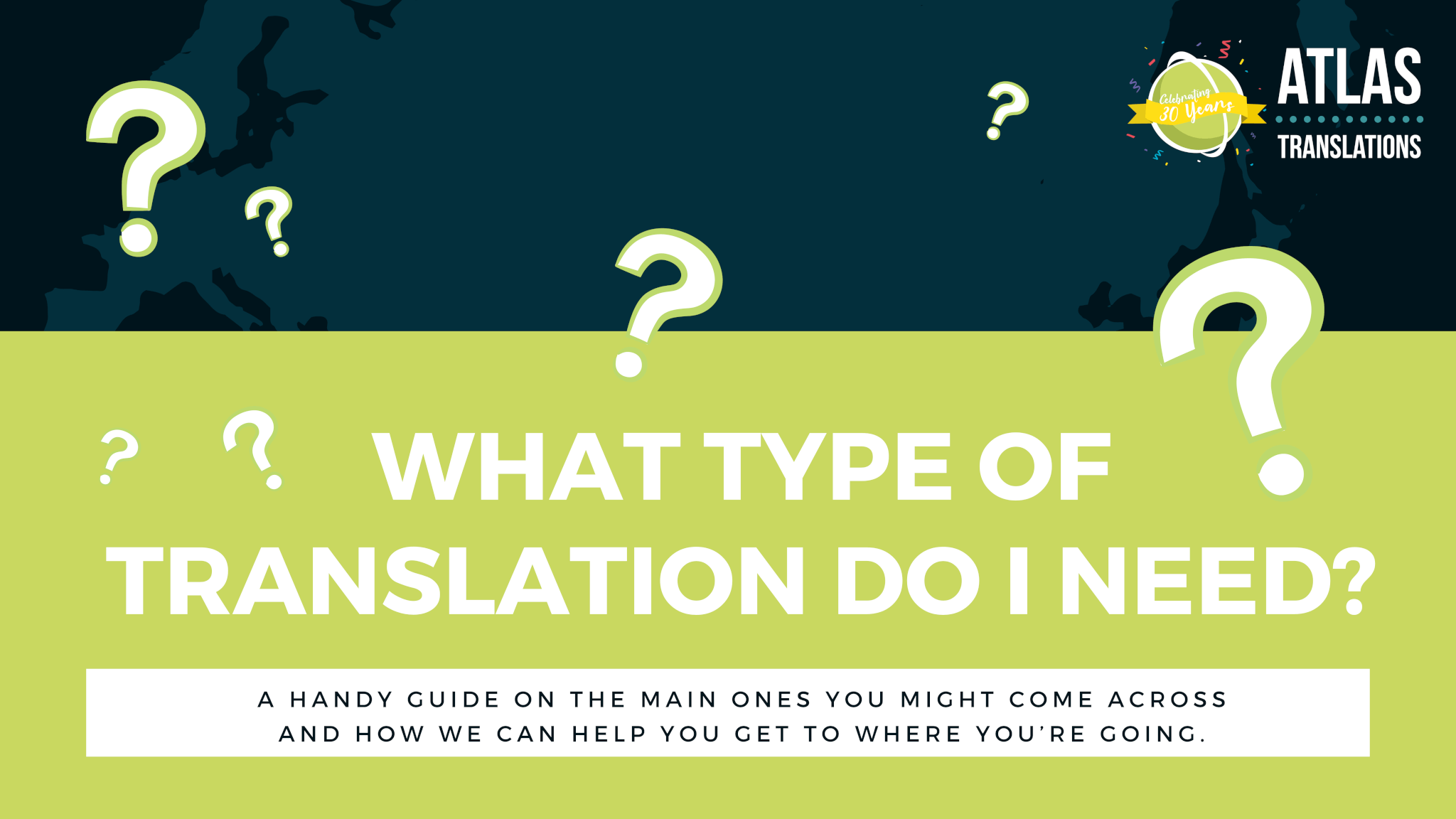What type of translation do I need?

At Atlas Translations, we’ve got bags of experience for all sorts of translation needs. Many of our clients come to us looking for support with one or more of the various types of official translation. Translating official documents can be an important step in moving abroad, expanding businesses, or for many other significant life events.
It’s easy to get confused between all the different types of official translation that you might need. Here’s our handy guide on the main ones you might come across and how we can help you get to where you’re going.
Certified Translations
Certified translations are one of the most common types of official translation we deal with. You’ll need certified translation for foreign documents in a language other than English that will be used for official purposes in the UK.
These official documents need a signature or stamp from a certified translator or translation agency. This is usually done through a written statement, which will contain a declaration that the translation is accurate with the signature of your assigned project manager.
Notarised Translations
Notarised translations share many similarities with certified translations, but have one major difference – the translation must be overseen by a notary, who has been given government authorisation to supervise the process.
Notarised translations might be necessary if you’ll need your documents to pass official inspection outside of the UK, as the notary’s signature acts as a seal of UK government approval. This isn’t always the case though, and it’s important to check with the institutions you’re dealing with to make sure you’re getting the translation that’s right for you.
Legalised Translations requiring an Apostille
An Apostille is a government-issued certificate that lets foreign countries know a public document is official. It’s never needed in the country where the document was originally made, but it is sometimes required by other countries to prove the authenticity of documents such as birth, death, or marriage certificates.
Not all countries will require an Apostille alongside your documentation, but others can be pretty strict about the issue. Whatever you need, it’s important to check with the countries you’re dealing with about what they require for your case.
Sworn Translation
Sworn translation involves using a translator who has had official government authentication to translate your documents. The need for sworn translation can be very different depending on where in the world you are. For example, it’ll never be necessary in the UK, where the concept of sworn translation does not exist.
However, in civil law countries such as France or Spain, sworn translation is often a necessary step in getting your documents recognised. Make sure to find out what the specific requirements are for the countries you’re dealing with to know whether sworn translation will be the right choice for you
Making Official Translation Easy with Atlas Translations
With thirty years of top-quality experience under our belts, Atlas Translations can help make your official translation requirements a breeze. Our professional translators are fully qualified to offer a wide range of translations, with plenty of glowing reviews to attest.
Hopefully this blog has helped to clear up any confusion you may have had about official translation. If you’re still not sure what type of translation you’ll need, talk to whoever’s asked for the translation to find out exactly what they require. When you know which translation is right for you, get in touch with us to kickstart the process.
Got your document to hand? Send it over to us for an itemised quote and we can get the ball rolling!















